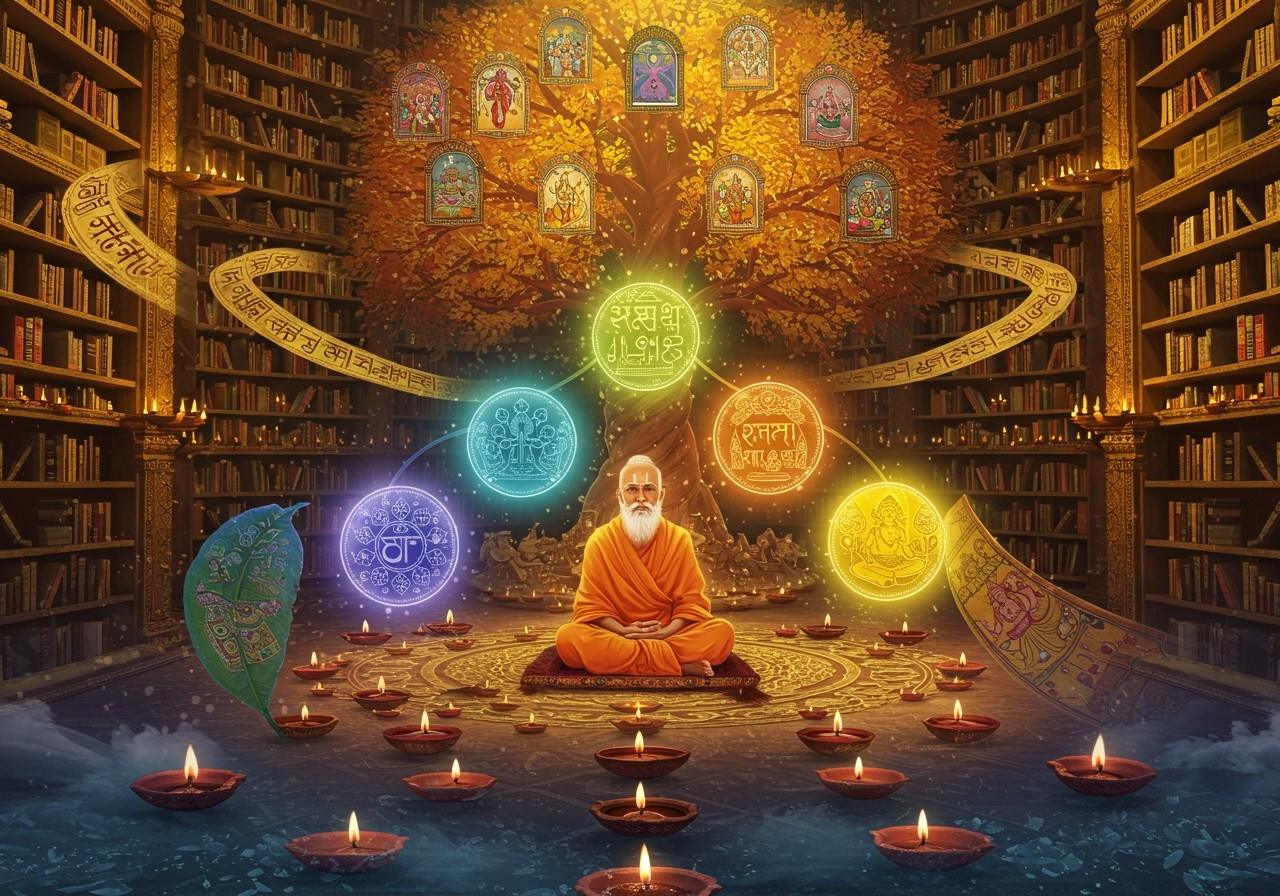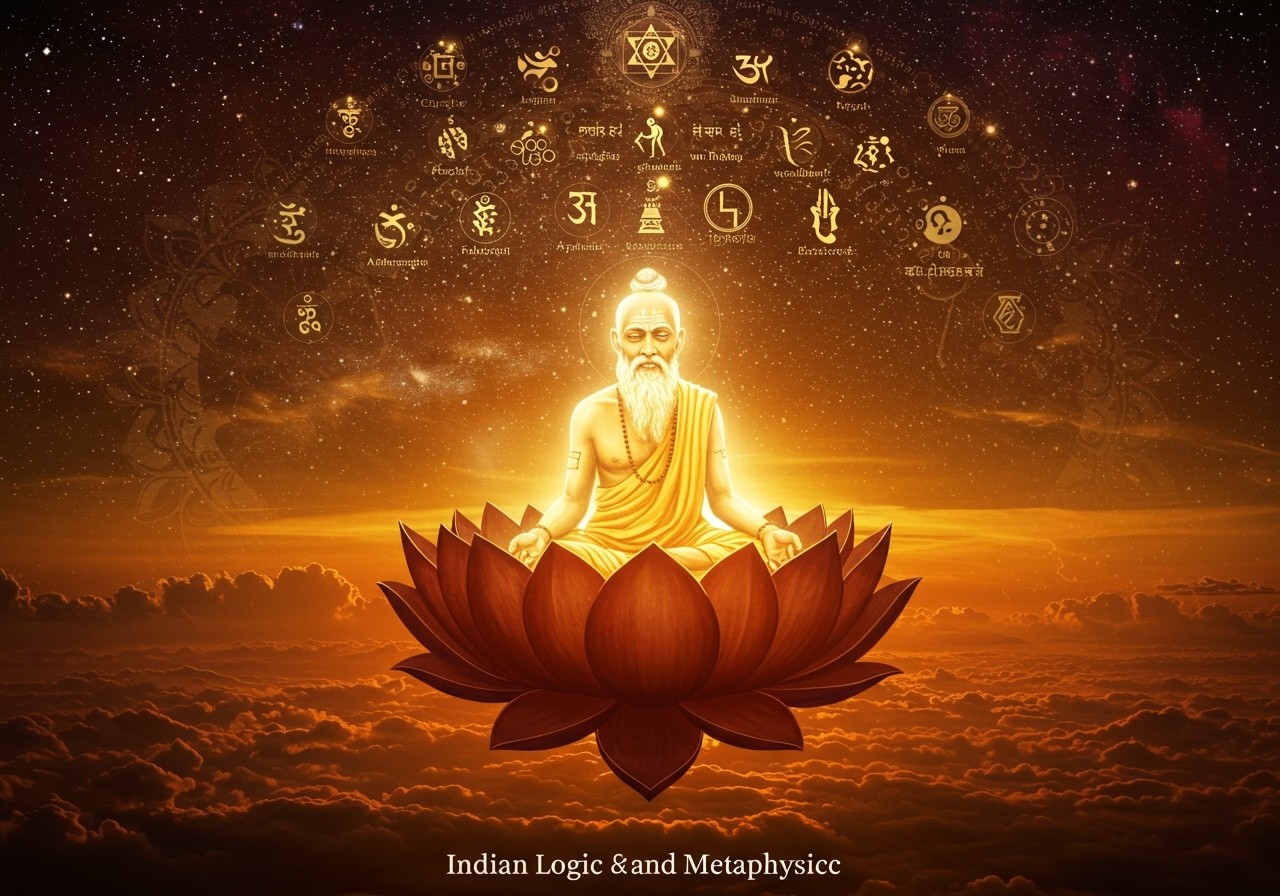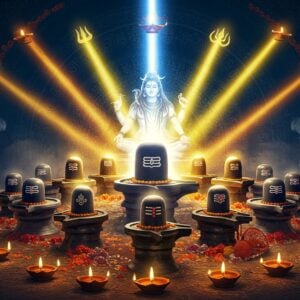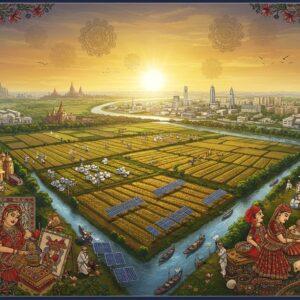

Namaste! Ever found yourself gazing at the stars, or sitting quietly during a puja, and wondering about the bigger questions of life? What is reality? What is my purpose? For centuries, our ancestors in India have explored these very questions through a rich and profound tradition of thought. This tradition is what we call Indian Logic and Metaphysics, or ‘Darshana’. It’s not just some old, complicated philosophy; it’s a practical guide, a spiritual compass that helps us navigate our lives with clarity and purpose.
Let’s take a journey together, not as scholars, but as curious souls, to understand this treasure of knowledge that is our inheritance. It’s the wisdom that forms the very foundation of our culture, our rituals, and our way of life.
The Roots of Our Wisdom: A Historical Glimpse
The story of Indian thought begins thousands of years ago with the sacred Vedas. Our ancient rishis, through deep meditation and introspection (Atma-vidya), received profound insights about the universe. These insights were further explored in the Upanishads. Over time, this ocean of knowledge was structured into different schools of thought, each offering a unique path to the ultimate truth.
We mainly have six orthodox schools (Astika), which accept the authority of the Vedas. These are Nyaya, Vaisheshika, Samkhya, Yoga, Mimamsa, and Vedanta. Then there are heterodox schools (Nastika) like Buddhism and Jainism, which, while not accepting the Vedas, contributed immensely to the philosophical discourse. This vibrant exchange of ideas is what made our intellectual heritage so incredibly rich and diverse.
The Art of Knowing: Unpacking Indian Logic (Nyaya)
How do we know that what we know is true? This is the central question of the Nyaya school of philosophy. It gave us a brilliant system for reasoning and critical thinking. It’s not about arguing for the sake of it, but about a disciplined search for truth.
The Nyaya school outlines valid means to acquire knowledge, known as ‘Pramanas’. These include:
- Pratyaksha (Perception): Knowledge gained directly through our senses. It’s about seeing, hearing, and feeling the world around us and understanding it for what it is.
- Anumana (Inference): This is the beautiful art of logical deduction. For example, if we see smoke on a hill, we infer that there must be a fire. It’s about connecting the seen with the unseen through reason.
- Shabda (Testimony): This refers to knowledge gained from a reliable source, like the sacred words of the Hindu scriptures or the teachings of a wise guru. It acknowledges that we can stand on the shoulders of giants to see further.
This systematic approach helps us build a clear and logical mind, a skill that is just as valuable in a modern boardroom as it was in an ancient debating hall!
Understanding Reality: The Heart of Indian Metaphysics
Metaphysics is the branch of philosophy that deals with the big questions: What is the nature of reality? What is the self? It’s where our philosophy becomes deeply spiritual.
At the core of Indian metaphysics are a few central concepts that you might have heard in bhajans or spiritual discourses:
- Atman and Brahman: Atman is the individual soul, the divine spark within each of us. Brahman is the ultimate, all-pervading reality, the cosmic soul. The profound declaration of Advaita Vedanta is that the Atman is not separate from Brahman – ‘Aham Brahmasmi’ (I am Brahman). This teaches us the interconnectedness of all life.
- Maya: The world we perceive through our senses is often described as ‘Maya’ or illusion. This doesn’t mean the world isn’t real, but that its temporary and changing nature veils the eternal, unchanging reality of Brahman. Understanding this helps us find peace amidst life’s ups and downs.
- Karma and Dharma: These are not just words, but guiding principles for a righteous life. Dharma is our righteous duty, our moral and ethical path. Karma is the universal law of cause and effect – every action has a consequence. Living a life of Dharma ensures positive Karma, leading us towards liberation, or Moksha.
Why This Ancient Knowledge Matters Today (And in 2025!)
In our fast-paced, modern world, this ancient wisdom is more relevant than ever. It offers us an anchor in a sea of constant change. The principles of Indian logic can sharpen our critical thinking skills, helping us make better decisions in our personal and professional lives. The metaphysical concepts of interconnectedness and Dharma can guide us towards a more compassionate and sustainable way of living.
This is not a forgotten tradition. In fact, it’s very much alive. For instance, the 11th Indian Conference on Logic and its Applications (ICLA) is scheduled for February 3-5, 2025, in Kolkata, bringing together modern thinkers to explore these very systems. This shows a growing global interest in applying our ancient ‘Darshanas’ to contemporary challenges.
Your Companions on the Path of Knowledge
Embarking on this spiritual journey of understanding requires both devotion and the right resources. At poojn.in, we understand this deeply. We are here to support your quest for knowledge and spiritual growth by providing authentic and sacred items delivered right to your home.
- To dive deeper into the original teachings, explore our curated collection of Holy Books, including the Vedas, Upanishads, and Gita.
- Creating a serene environment for study and meditation is crucial. Find all the essentials in our extensive range of Pooja Samagri, from pure incense to hand-crafted diyas.
- Adorn your sacred space with beautiful items from our Bhagwan ka Sringar collection, creating an atmosphere of divinity that inspires learning.
With poojn.in, India’s biggest cultural goods & services store, you have a trusted partner for all your spiritual needs.
Your Questions Answered: Exploring Indian Philosophy
Many of us have questions as we begin to explore this vast ocean of knowledge. A common point of curiosity is how our ‘Darshanas’ compare to philosophies from the West. While Western philosophy often relies heavily on empirical evidence and rationalism, Indian philosophy beautifully integrates the spiritual with the logical. It sees introspection and intuition as valid paths to realizing the ultimate truth, aiming not just for intellectual understanding but for spiritual liberation (Moksha).
People also wonder if studying these concepts can genuinely impact personal growth. The answer is a resounding yes! Engaging with these ideas encourages self-awareness and mindfulness. Understanding concepts like Karma and Dharma can provide a strong ethical framework, guiding you to live a more fulfilling and purposeful life. It is a journey that transforms you from within, bringing a sense of peace and clarity that is priceless in today’s world.
The Journey Forward
Exploring Indian logic and metaphysics is not an academic exercise; it’s a journey back to our roots, a way to connect with the timeless wisdom of our land. It teaches us to think clearly, to see the divine in everything, and to live with purpose and grace. As we continue to blend our rich traditions with modern life, this knowledge is the light that will always guide our way.


